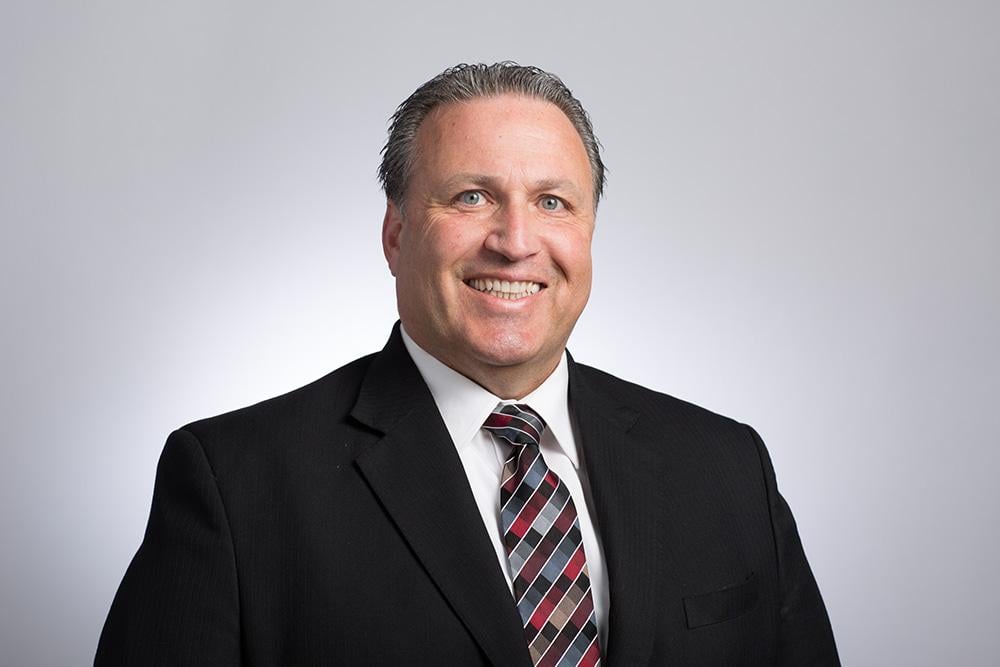
Domenic Proscia, vice president of training at Vaughn College
New York City-based Vaughn College offers a variety of aviation programs, including certificates and degrees in aviation maintenance. Vice President of Training Domenic Proscia spoke with Aviation Week Network about improving MRO industry workforce pipeline efforts and ways in which Vaughn College is preparing students for emerging technologies.
In early May, Vaughn College invited Joby Aviation to campus to share its electric vertical take-off-and-landing (eVTOL) flight simulator with students. As we see more action happening in the advanced air mobility segment, how is Vaughn College approaching training that might be relevant for eVTOLs?
Joby is a great partner, and we were thrilled to host the simulator for about 10 days this year. Government officials including the FAA, local high school students, the Queens Boys and Girls Club, and Vaughn students and faculty were able to fly this next generation, environmentally friendly aircraft. Joby hopes to begin service in late 2025 and we know that it will need pilots, maintenance technicians and more to scale its business, and Vaughn has the capability to provide a long-term workforce pipeline. We are committed to working with Joby to develop additional curriculum for this emerging market.
Unmanned aerial vehicles are a growing aspect of Vaughn’s efforts. We offer a 15-credit certificate program that provides insight on designing and safe flying, and high school schools from the New York City-area have taken part in this program and achieved their Part 107 certification (the FAA certification to fly drones). Vaughn has also started working with Beta Technologies and will have our first student interning with the company this summer.
Vaughn College offers associate and bachelor’s degree programs in aviation maintenance, beyond just airframe and powerplant (A&P) certification. We’re hearing that companies are now starting to recruit students much earlier, so fewer are opting to earn degrees that could qualify them for leadership roles down the road. What are you observing when it comes to this trend?
Students are delaying higher degrees and are joining the workforce as soon as they get their certifications. At Vaughn, we see this as a good first step for students new to the field. We want our graduates to be successful through programs such as lifetime career counseling and support. We also know that graduates take advantage of tuition reimbursement opportunities that most companies offer, and we encourage them to get into the industry and take advantage of those opportunities. Those who are destined for leadership roles will prioritize education as their careers progress.
Aviation maintenance skills are in high demand in other industries, and ATEC recently released a study showing that a large proportion of participating students were planning to transition to roles outside MRO. Is this something you’re observing, and if so, what types of industries are aviation maintenance graduates going into?
The aviation industry provides a skill set that is very much in demand by other industries. Manufacturing, public utilities (such as onshore and offshore wind) and service industries are the greatest recipients of those leaving the field. The transferability of our program’s skill sets could be viewed as futureproofing a graduate’s livelihood against market changes. With that said, the aviation industry should consider additional options to make it even more attractive to students.
To grow the workforce pipeline, aviation could consider defining career pathways for new hires, working toward better compensation and benefits packages, and offering more apprenticeship and internship opportunities to students. Equally important is the need to partner and support the institutions that provide those certified technicians with equipment donations, regular campus visits to speak to students about the opportunities, work with the institution’s feeder high schools to promote the field, and offer scholarships for under resourced and underserved individuals who often struggle to afford certification programs.
Why do you think it is important for companies to get involved with aviation maintenance schools, and what types of efforts create the most impact?
Workforce development can begin as soon as a student begins their studies to ensure a pipeline of well-trained technicians. Involvement with education providers demonstrates a company’s commitment to students while also raising awareness about the opportunities available. The effort that generates the greatest impact is involvement with an educational provider’s advisory board. Typically, an advisory board has regular input on the curriculum, safety training and other skills needed for success. This helps institutions develop graduates who are job ready.
How do you think the MRO industry can do a better job of attracting and retaining young people?
The two greatest barriers to getting more young people involved are awareness about the field and finances to afford the education and training. Partnering with local colleges and universities, particularly those that serve individuals from underrepresented communities and have no real awareness about the vast options in aviation, is key to retaining and attracting young people. Students want to make a difference; they are looking for companies that will offer them that opportunity, as well as offering a stable work environment that has a clear path to leadership roles.
With such a large number of students in our aviation maintenance program, it is natural to assume that as a result of our proximity to three major airports, most graduates gravitate toward work with regionals and majors. There are, however, many students who are looking for a more stable work environment that MROs as well as manufacturers can offer. We invite industry to hold information sessions and recruiting events on campus to make sure that our students are aware of the many opportunities that they could have after program completion.





